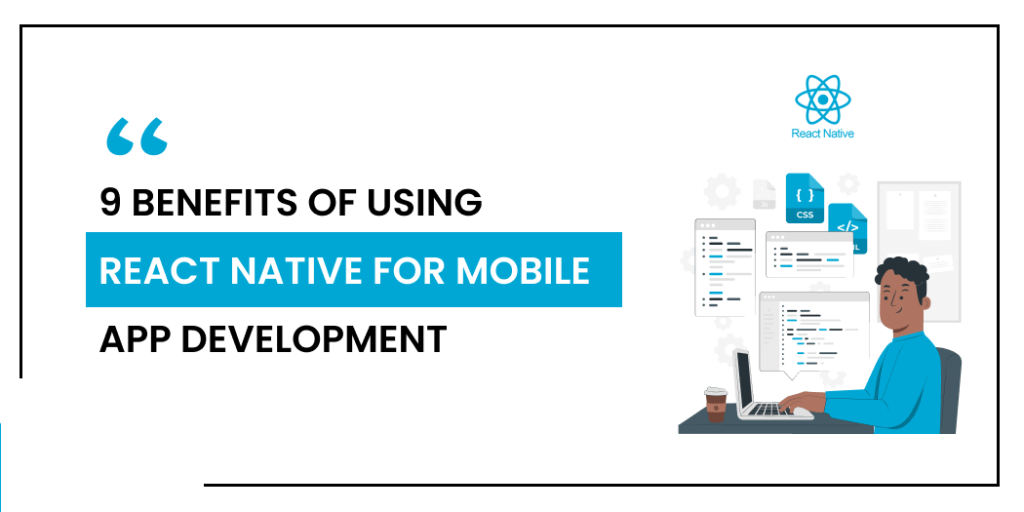Introduction to React Native
In the ever-evolving landscape of mobile app development, React Native stands out as a powerful and efficient framework. Developed by Facebook, React Native has gained immense popularity due to its ability to build high-quality mobile applications for iOS and Android platforms simultaneously.

Cost-Effectiveness
One of the significant benefits of using React Native for mobile app development is its cost-effectiveness. Unlike developing separate codebases for iOS and Android, React Native allows developers to write a single codebase that can be used for both platforms, thereby reducing development costs significantly.
Cross-Platform Compatibility
React Native offers seamless cross-platform compatibility, enabling developers to build applications that run smoothly on both iOS and Android devices. This eliminates the need for separate development teams and reduces the time and effort required to launch an app on multiple platforms.
Reusable Components
A key feature of React Native is its modular architecture, which allows developers to create reusable components that can be shared across different parts of the application. This not only streamlines the development process but also ensures consistency and scalability in the app’s design.
Faster Development Time
With its hot reloading feature, React Native enables developers to see the changes they make to the code in real-time, without the need to recompile the entire application. This significantly speeds up the development process, allowing developers to iterate quickly and deliver new features faster.
Hot Reloading
Hot reloading is a game-changer in the world of mobile app development. It allows developers to make changes to the codebase and see the results instantly on the emulator or device, without losing the current state of the application. This not only enhances productivity but also makes the development process more interactive and enjoyable.
Native Performance
Despite being a cross-platform framework, React Native offers native-like performance, thanks to its use of native components and APIs. This ensures that the apps built with React Native are fast, responsive, and deliver a smooth user experience on both iOS and Android devices.
Community Support and Documentation
React Native boasts a vibrant and active community of developers who contribute to its ongoing development and improvement. This extensive community support ensures that developers have access to a wealth of resources, tutorials, and libraries to help them overcome any challenges they may encounter during the development process.
Simplified UI/UX
React Native simplifies the process of building intuitive and user-friendly interfaces by providing a wide range of pre-built components and libraries. This allows developers to create visually stunning and highly interactive UI/UX designs without having to write complex code from scratch.
Easy Integration with Third-Party Plugins
Another advantage of using React Native is its seamless integration with third-party plugins and libraries. Whether it’s integrating analytics tools, social media APIs, or payment gateways, React Native makes it easy for developers to extend the functionality of their apps by leveraging existing plugins and libraries.
Enhanced Developer Productivity
By offering a streamlined development experience, React Native enables developers to focus more on building innovative features and less on managing technical complexities. This leads to improved developer productivity and ultimately results in faster time-to-market for mobile applications.
Scalability
React Native is highly scalable, making it an ideal choice for both small startups and large enterprises alike. Whether you’re building a simple MVP or a complex enterprise-grade application, React Native can easily scale to accommodate your growing user base and evolving business needs.
Regular Updates and Maintenance
Facebook and the React Native community are committed to providing regular updates and maintenance to ensure that the framework remains robust, secure, and up-to-date with the latest industry standards and best practices. This ensures that your mobile apps built with React Native stay relevant and competitive in the ever-changing app market.
Security
Security is a top priority in mobile app development, and React Native offers robust security features to protect your app and its data from potential threats and vulnerabilities. With built-in security mechanisms and best practices, React Native helps developers build secure and reliable mobile applications that instill trust and confidence in their users.
Conclusion
In conclusion, hire react native developers offers a plethora of benefits for mobile app development, ranging from cost-effectiveness and cross-platform compatibility to enhanced developer productivity and security. By leveraging the power of React Native, businesses can build high-quality mobile applications that deliver a seamless user experience across multiple platforms, ultimately driving growth and success in the competitive mobile app market.
FAQs
- Is React Native suitable for all types of mobile applications?
- Yes, React Native is suitable for building a wide range of mobile applications, including but not limited to e-commerce apps, social media platforms, and enterprise-grade solutions.
- Can I hire React Native developers to build my mobile app?
- Absolutely! There are many skilled React Native developers available for hire who can help you bring your mobile app idea to life.
- How does React Native compare to other cross-platform frameworks?
- React Native offers unique advantages such as native-like performance and hot reloading, making it a popular choice among developers compared to other cross-platform frameworks.
- Is React Native easy to learn for beginners?
- While React Native has a learning curve, its extensive documentation and active community make it accessible for developers of all skill levels.
- What are some famous apps built with React Native?
- Some well-known apps built with React Native include Facebook, Instagram, Airbnb, and Uber Eats.